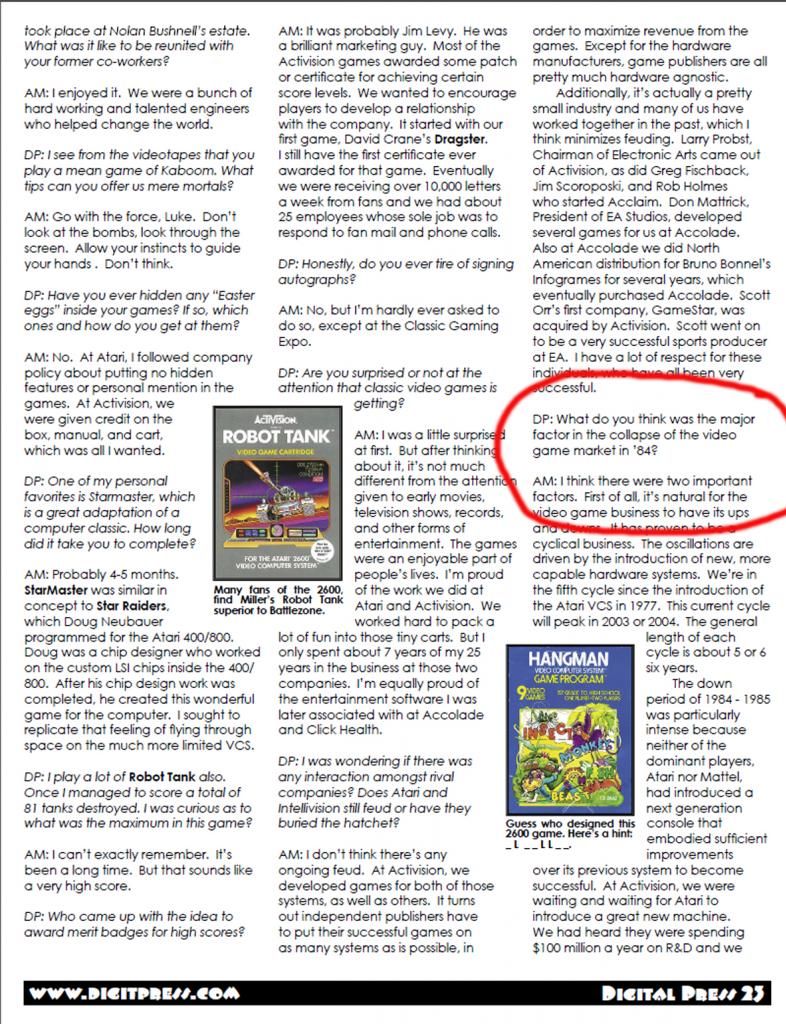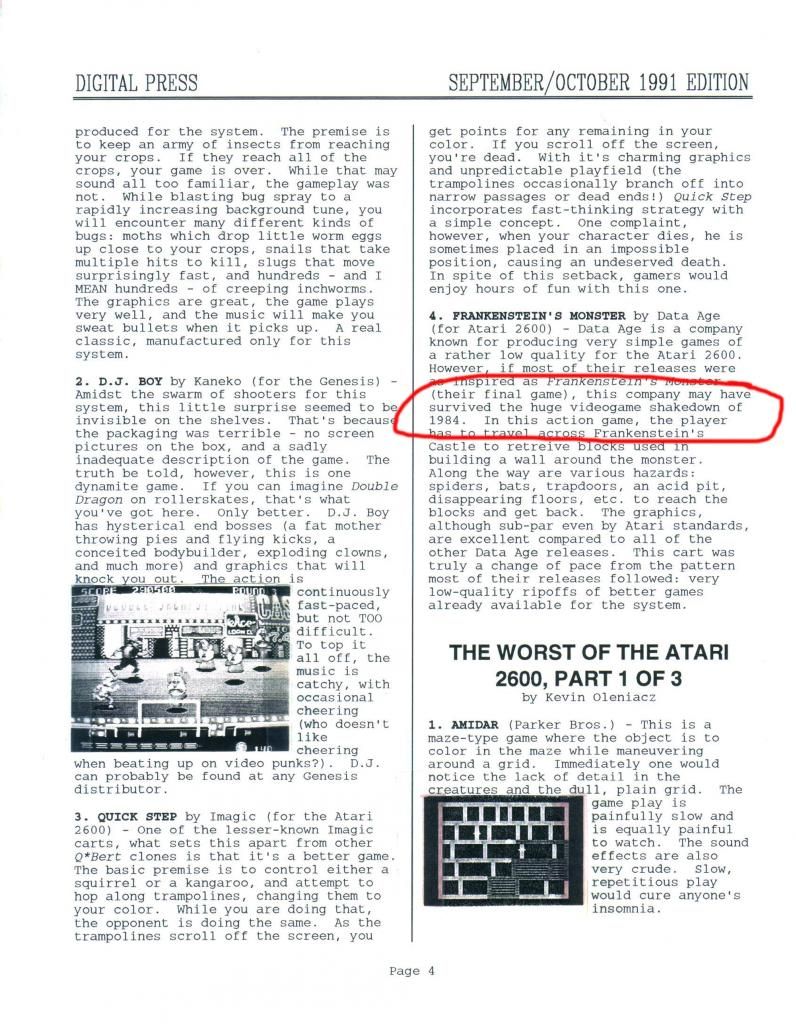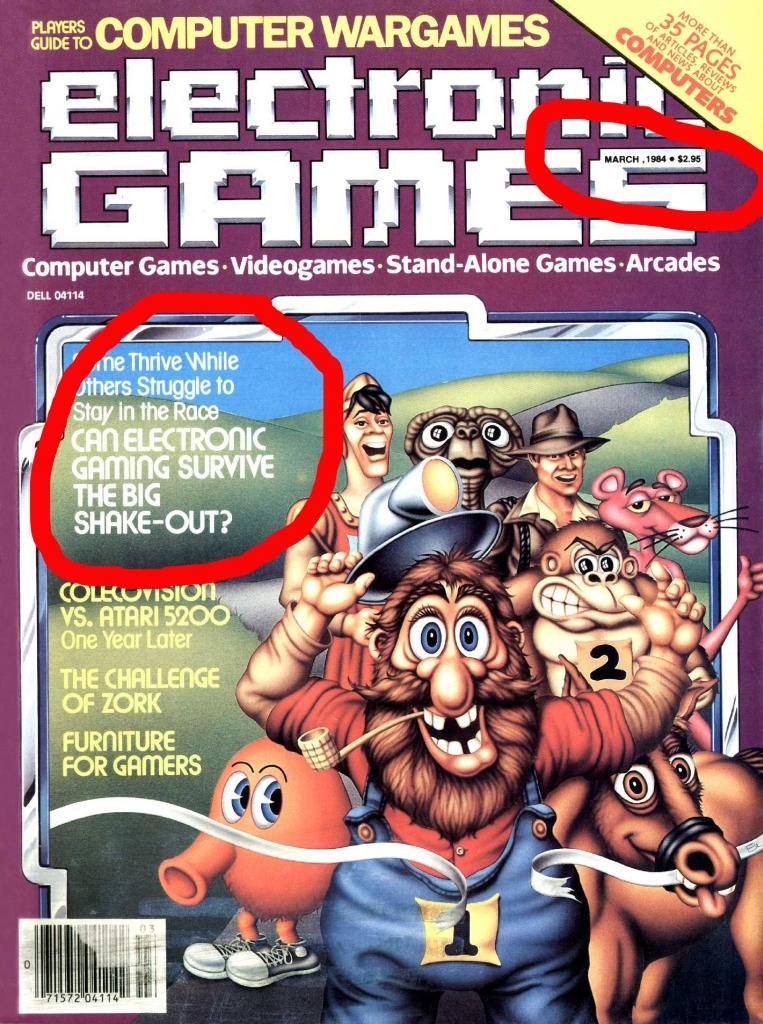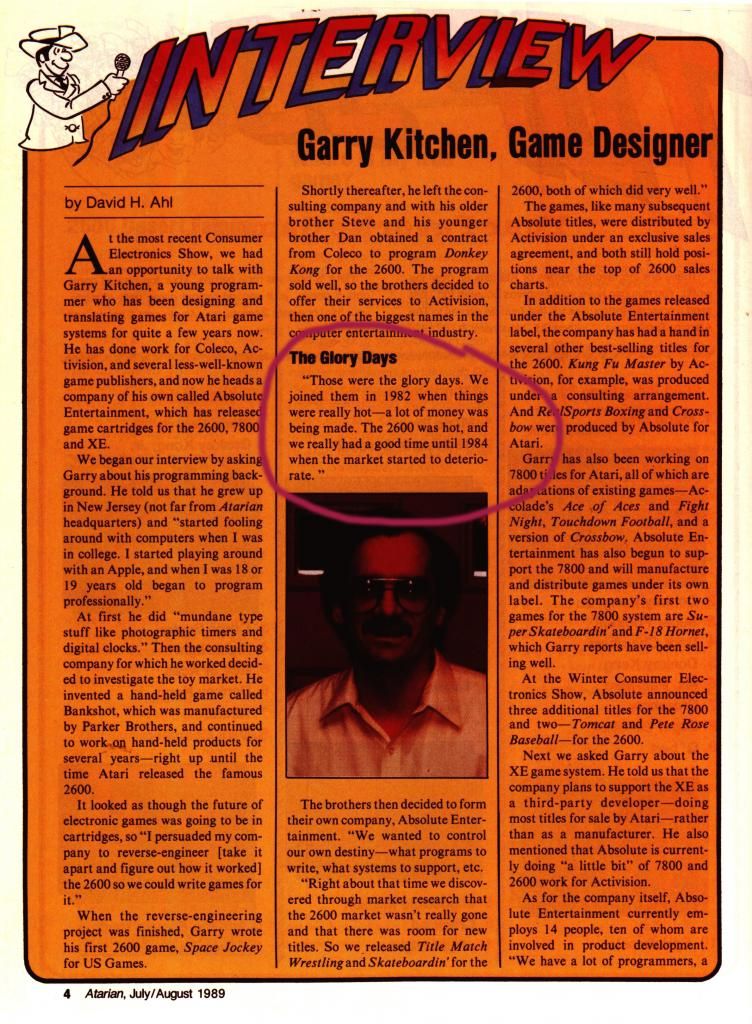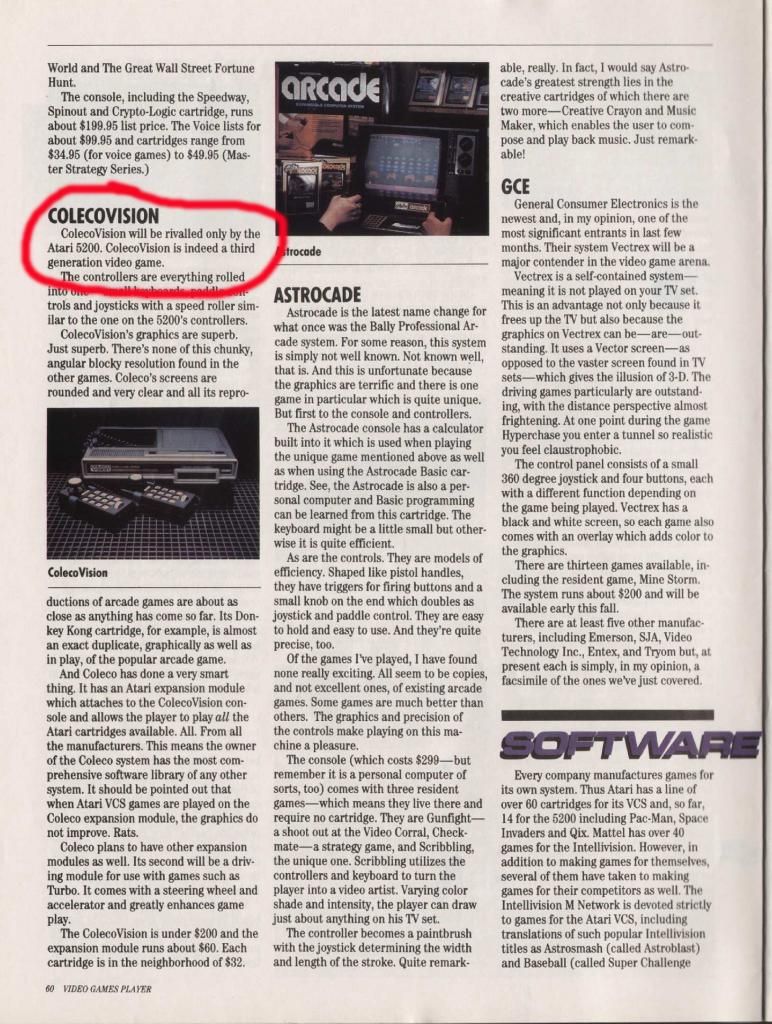The traditional reckoning of video game generations has been to put them in (currently) eight generations. But I believe there is an unacknowledged generation between the 2nd and 3rd generation, and these are the systems launched around 1982, just before the video game crash.
The first generation was, of course, the Odyssey and PONG clones, released generally in 1977 and earlier. The second generation was the first round of programmable video game systems, with the Atari 2600 exemplifying this generation. There was a round of systems launched in 1976-1979, including the Fairchild Channel F, RCA Studio II, Atari 2600, Astrocade, Magnavox Odyssey 2, and Intellivision.
What we call the "third generation" were consoles launched in 1985-1986 in the USA, with the near-total of the 3rd gen market between the NES, Master System, and Atari 7800.
But there are some major points to be made that the third generation was really the systems launched circa 1982, such as the ColecoVision, Vectrex, Atari 5200, and Arcadia 2001.
1) Time. The "2nd generation" systems launched around 1977 and the "3rd generation" systems launched around 1985. If we look at other generations (pre-7th), we see their spacing is about 4-5 years apart, not 8. 1st gen launched circa 1975, 2nd 1977. 3rd 1986, 4th 1990, 5th 1995, 6th 2000, 7th 2006. These are dates the systems were released around: for instance the 4th gen systems were released 1989-1991, hence I used 1990. The 8 year gap is often explained to be because of the video game crash. The circa 1982 systems, however, would fit in this generational progression nicely, being about 5 years after the 2nd generation and 4 years before the 3rd generation. If anything they are closer to the 3rd generation. This is especially true if we consider that the NES, which had the majority of market share in the 3rd generation, was launched in Japan in 1983, just a year after the circa 1982 systems saw their USA launches.
The circa 1982 systems' life was cut short by the video game crash.
2) Successors. Some of the circa 1982 systems were generational successors to 2nd generation systems. The Atari 5200 was a successor to the 2600, in the same way that the SNES was a successor to the NES. The ColecoVision was a successor to the Telstar Arcade, a cartridge based system released around the time of the 2600. Magnavox was planning to release an Odyssey3, which would be an American localized version of the Philips Videopac G7400, which was the European successor to the Odyssey2 (known as the Philips Videopac over there). The Videopac G7400 is called a "third generation" console on Wikipedia, yet wasn't even as powerful as most of the circa 1982 systems.
3) Power. In most contiguous generations, there's a pretty significant gap between the earlier and later generation, but it's an evolutionary rather than a revolutionary step. The 4th to 5th gen was a larger step due to 3D, but even 4th gen could do 3D (albeit clunkily). Atari 2600 vs. NES, however, is a massive leap. The leap from NES to PS1 is about the same. Atari 2600 to Colecovision to NES, on the other hand, is a smoother generational "stairstep". In fact the SG-1000, with hardware very similar to the Colecovision, was able to compete for a short time with the Famicom. The Colecovision, the leader of the circa 1982 systems, was closer to the NES hardware wise than it was than the Atari 2600. And the Atari 5200 had audio capabilities that could have easily competed in the 3rd generation.
The traditional argument for lumping the "true 2nd generation" and circa 1982 systems together was the video game crash, the fact that these new systems did not "overthrow" the older systems. But the journalism of the time called these systems a new generation, even calling them "third wave". This sounds like a 1980s way of saying "3rd generation" to me. But I see the circa 1982 systems as being a generation "cut short". This generation lasted from 1982-1986, roughly, but much of this time was taken up by the video game crash and little was selling. Even on the eve of the video game crash, the Atari 2600 was beginning to decline. Had there been no video game crash, it's probable that the "true 2nd generation" systems would have been fully supplanted by the circa 1982 systems within a few years. Some of what caused the video game crash of 1983 - a glut of systems - repeated itself around 1994, but the much more mature video game market was able to survive.








 Reply With Quote
Reply With Quote


 ]
]








